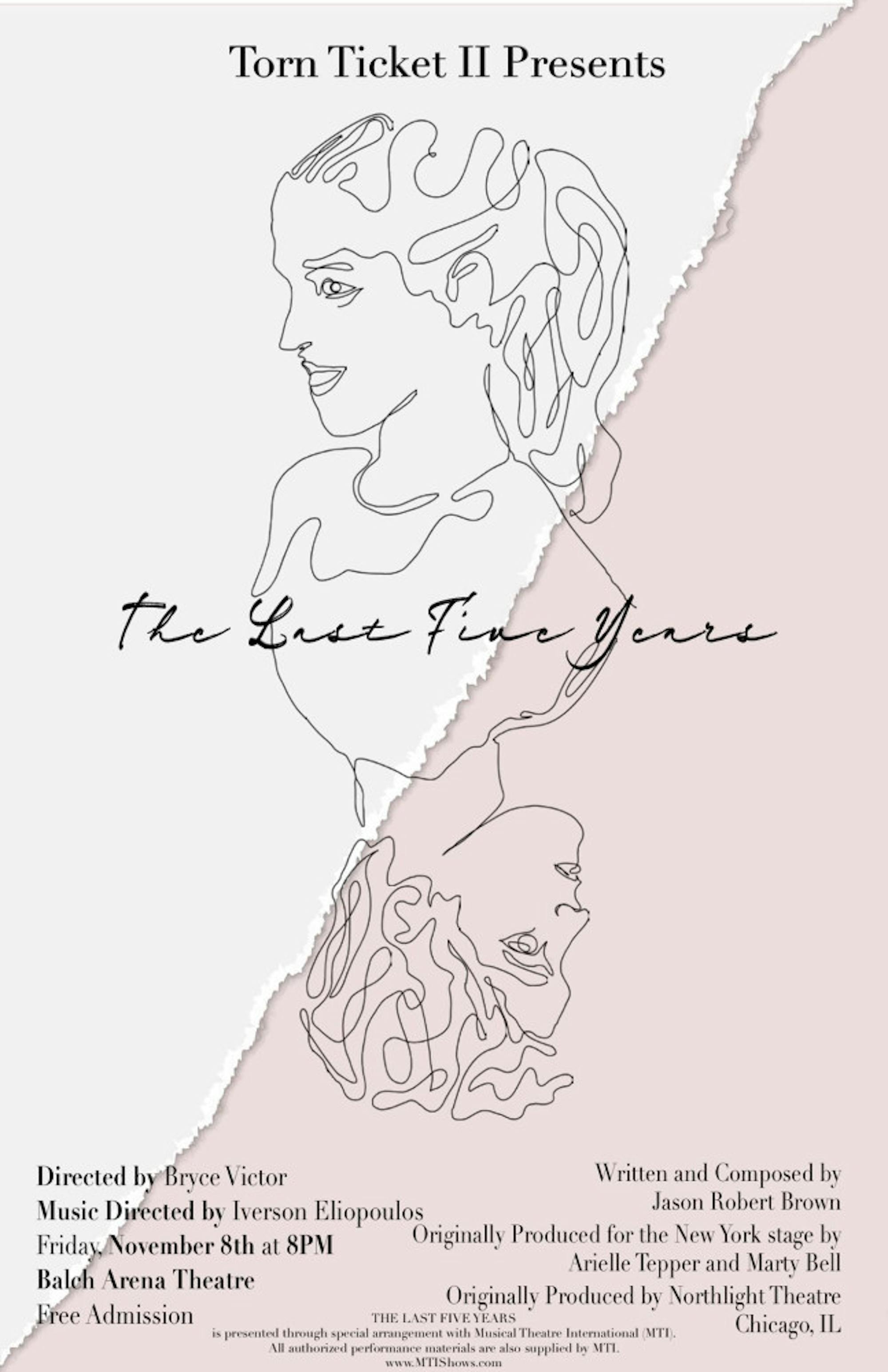Is it really better to have loved and lost than never to have loved at all? Torn Ticket II’s fall minor production of "The Last Five Years" cast doubt on the old adage. The one-night engagement starred seniorNick Jodka and sophomore Francesca Viggiani as Jamie and Cathy, respectively, two burgeoning artists whose relationship is born and dies over the course of the show. Sophomore Bryce Victor directed the production, which featured a six-piece pit ensemble led by junior Iverson Eliopoulos.
"The Last Five Years" (2001) follows 20-somethings Jamie and Cathy over the course of (you guessed it) five years, from their first date to the death of their marriage. One of the features that sets this musical apart from other entries in the genre of divorce drama is its avante-garde, non-linear narrative structure. The two characters recount the arc of their relationship from opposite ends of its life; Jamie starts at the beginning and Cathy begins at the end. They only “meet” — that is, their stories align — for their wedding halfway through the show, a moment of synchronous bliss before the two resume their inexorable drift apart.
Viggiani, who plays Cathy, noted that writer and composer Jason Robert Brown’s music has a unique realist quality which lands it in a league of its own. “Jason Robert Brown is a genius composer … I feel like if music was how someone would speak what they were saying in that moment, he nails it. And I love singing it for that reason," she told the Daily.
Compared to Torn Ticket II’s annual major productions, minor productions like 'The Last Five Years" are relatively pared-down. Far from being limited, however, students enjoy a greater degree of freedom in proposing and selecting minor productions. To be eligible to submit a major proposal, students must meet a set of prerequisites from both Torn Ticket II and the drama department. For a minor production, on the other hand, any student may propose a show they wish to direct, one of which is then selected by the voting members of Torn Ticket II. This production was pulled together in just a matter of weeks. According to Viggiani, the musical’s unconventional narrative structure actually posed a unique kind of acting challenge in rehearsal. During the opening scenes of the musical, Cathy and Jamie find themselves at the end and the beginning, respectively, of their relationship. Moving fluidly between two divergent emotional paradigms required a lot of discipline. “You just have to be able to flip the switch,” Viggiani said.
The particular genre of “divorce drama” — which is dominated, as it were, by white male creative types — is notorious for its antagonism towards the female partner in the icy tango of heterosexual divorce, particularly when she is the one who decides to end it. Although (spoiler alert) that’s not the case in this show, when faced with critics, Viggiani flies to her character’s defense. In so doing, she’s able to sketch a blueprint of Cathy’s inner workings as detailed as if she were a childhood friend. “She has really high expectations for what her life’s gonna look like, and very clear expectations," Viggiani said. "And so when she sees those realized with another person and not with herself, she crumbles.”
The intimate process of acting is not unlike fostering a relationship. Indeed, the wisdom Viggiani channels while portraying Cathy could serve as a valuable lesson to both of the musical’s protagonists. “My old acting teacher used to say, ‘you can never judge a character,’” Viggiani recalled. “You can recognize their flaws like you recognize your own flaws, but ... you have to be able to understand where they’re coming from.” Perhaps the same could be said of a partner.
Learning from love and loss in 'The Last Five Years'






